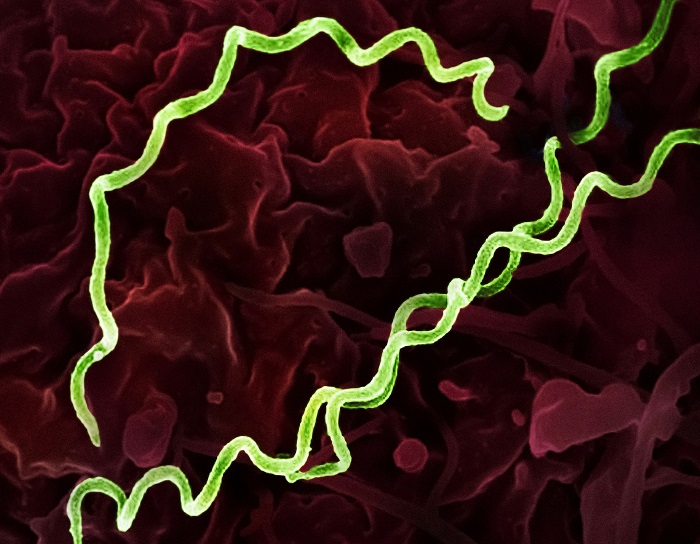In the landscape of HIV in the United Kingdom, a complex tapestry of challenges and triumphs defines the experiences of individuals living with the virus. Despite significant strides in medical advancements and public awareness, an insidious undercurrent persists—the prevalence of shame among those living with HIV. This silent adversary has woven itself into the lives of many, imposing emotional burdens that extend far beyond the physiological aspects of the condition.
The stigma surrounding HIV in the UK has historical roots, rooted in misinformation, fear, and societal bias. While medical advancements have transformed HIV from a once-debilitating illness to a manageable chronic condition, the psychological toll of shame endures. The HIV community in the UK faces not only the challenges of managing a chronic disease but also the weight of judgment, misunderstanding, and prejudice.
The prevalence of shame within this community is a poignant reality, often exacerbating mental health struggles and hindering individuals from seeking the support they need. It is imperative to unravel the layers of shame surrounding HIV, understand its origins and impact, and foster an environment of empathy, education, and acceptance.
Read more: Revolutionizing HIV Treatment: The CRISPR Breakthrough
Understanding the Roots of Shame
The roots of shame intertwined with HIV in the UK are deeply embedded in a historical context marked by fear, misinformation, and societal bias, and the early years of the HIV/AIDS epidemic witnessed a tidal wave of panic and hysteria fueled by a lack of understanding about the transmission of the virus. As the epidemic unfolded, the media sensationalized HIV, portraying it as a death sentence, which in turn contributed to the stigmatization of those affected.
Societal misconceptions and stereotypes surrounding HIV have played a pivotal role in nurturing an environment of shame. Misinformation about the modes of transmission, often rooted in homophobia and discrimination, led to the unjust association of HIV primarily with specific communities. These misconceptions persist, perpetuating harmful stereotypes that cast a shadow over individuals living with HIV, fostering a sense of shame that goes beyond the medical aspects of the condition.
Real-life stories and experiences serve as poignant testaments to the pervasive impact of shame within the HIV community. Individuals living with HIV in the UK often find themselves at the intersection of multiple forms of discrimination—be it related to their sexual orientation, gender identity, or other societal biases. These stories reveal the profound emotional toll of shame as individuals grapple not only with the physical challenges of managing HIV but also with the weight of societal judgment.
The Psychological Toll of Shame
Living with HIV-related shame imposes a profound psychological toll on individuals, extending far beyond the physical dimensions of the condition. The emotional burden of guilt can manifest in various ways, impacting mental health and well-being. Understanding the intricate interplay between HIV-related shame and mental health is crucial for addressing the holistic needs of individuals within the HIV community in the UK.
One of the primary psychological effects of HIV-related shame is the erosion of self-esteem and self-worth. Individuals may internalize societal stigma, viewing themselves through a lens tainted by judgment and misconception. This internalized shame can lead to feelings of guilt, worthlessness, and isolation, exacerbating existing mental health challenges.
The societal stigma surrounding HIV compounds the mental health struggles of individuals within the HIV community. Discrimination and prejudice contribute to heightened levels of stress, anxiety, and depression. Fear of disclosure, rejection, and social ostracization can lead to a persistent state of hypervigilance, further intensifying the psychological burden carried by those living with HIV.
Numerous studies and research endeavors have underscored the intimate link between shame and mental health in the HIV community. Moreover, the constant threat of social rejection and the internalized stigma associated with HIV contribute significantly to elevated stress levels within this population.
The impact of mental health challenges extends beyond the individual, affecting interpersonal relationships and overall quality of life. Individuals may hesitate to seek medical care, disclose their HIV status, or engage in supportive communities due to the paralyzing effects of shame. Recognizing this, mental health support tailored to the unique needs of the HIV community becomes imperative.
Read more: Living as a Christian with an STD: Finding Redemption & Support
Community Support and Empowerment
Building supportive communities is a cornerstone in the battle against HIV-related shame, offering a lifeline for individuals grappling with the emotional complexities of living with the virus. Recognizing the significance of community support goes beyond acknowledging the shared experiences; it involves creating safe spaces where individuals can find understanding, acceptance, and strength.
Supportive organizations and initiatives are pivotal in fostering environments free from judgment and stigma. The Terrence Higgins Trust, for example, has been at the forefront of the fight against HIV stigma in the UK, providing a range of services from counseling to educational programs. These initiatives aim not only to address the medical aspects of HIV but also to dismantle societal biases, creating spaces where individuals feel empowered to share their experiences without fear of discrimination.
One impactful avenue for fostering community support is establishing support groups and networks. These forums provide individuals living with HIV a platform to connect, share stories, and exchange coping strategies. The power of shared experiences within these groups lies in validating and understanding peers who have faced similar challenges. The isolated voices burdened by shame within these networks find resonance and collective strength.
The impact of support groups on empowering those affected by HIV-related shame extends beyond emotional well-being. Research consistently demonstrates that individuals who actively engage in support groups exhibit higher levels of self-esteem, improved mental health, and a more positive outlook on life. The camaraderie and mutual support within these communities create a sense of belonging that counteracts the isolating effects of shame.
Moreover, support groups often catalyze advocacy and education as empowered individuals strive to dismantle stereotypes and challenge societal biases. By sharing their stories, these individuals contribute to a broader narrative that humanizes the experiences of those living with HIV, eroding the foundations of shame that have persisted for decades.
Conclusion
In unraveling the intricate layers of HIV-related shame within the UK, our exploration has underscored the historical context, societal misconceptions, and psychological toll that individuals within the HIV community endure. The pervasive nature of shame, deeply intertwined with stigma, has created a landscape where individuals not only navigate the physical challenges of living with HIV but also contend with the heavy burden of societal judgment.
As we reflect on the significance of community support and empowerment, it becomes evident that building safe spaces and fostering understanding are essential pillars in dismantling the web of shame that has enshrouded the HIV community for far too long. Organizations and initiatives championing these causes are pivotal in creating environments where individuals can share their stories, find strength in collective experiences, and challenge societal biases.
Yet, the journey towards eradicating HIV-related shame is ongoing. It necessitates a commitment to continuous education, advocacy, and fostering a culture of empathy. The impact of mental health challenges and the deep-seated roots of shame within society remind us of the urgency to confront and dismantle these barriers.
Reference: Almost half of people living with HIV in the UK feel ashamed




